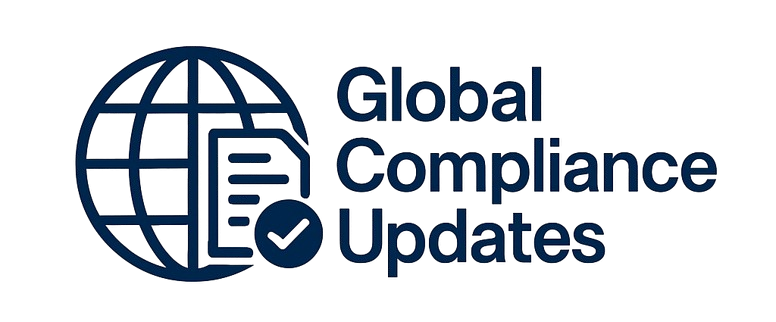Technical Writing generally conforms to Good Documentation Practices (GDocP). This term describes standards to create and maintain documents. The term is primarily associated with the pharmaceutical and medical devices industries but applies to documents created in multiple organizations. Most companies have in-house requirements that all documents produced within the organizations conform to the firms' particular requirements. The purpose of this webinar is to define and clarify general guidelines for the creation and maintenance of documents in order to ensure consistency between documents created by various functional groups within organizations.
WHY SHOULD YOU ATTEND?
IT, scientific, human resources and even legal personnel may benefit from learning how to apply the best practices to Technical Writing because the creation of documents applies to all disciplines. Join this webinar to gain valuable insight into how to address this challenge.
AREA COVERED
- Basics of Technical Writing Best Practices
- Technical Writing Best Practices General Requirements
- Technical Writing Best Practices for Violations
- Technical Writing Best Practices for Corrections
- Technical Writing Best Practices the Treatment of Numbers
- Technical Writing Best Practices for Reference to Source Materials
LEARNING OBJECTIVES
- Apply Technical Writing Best Practices to any document
- Gain insight into Technical Writing Best Practices General Requirements
- Avoid violations of Technical Writing Best Practices
- Learn the Technical Writing Best Practices for corrections
- Learn the Technical Writing Best Practices for the treatment of numbers
- Learn the Technical Writing Best Practices for the reference of source materials
WHO WILL BENEFIT?
- IT Personnel
- Scientific Personnel
- Human Resources
- Any highly specialized company personnel
- Chemists
- Engineers
- Any highly technical, highly specialized personnel
- Scientists, engineers, and technicians in research and development
- Quality assurance (QA)
- Information technology (IT)
- Manufacturing
- Other operations professionals
- Administrative staff that must prepare documentation in support of R&D and operations activities
- Anyone who wants an in-depth and comprehensive overview of the structure of the language and writing within the broad range of reporting that the industry requires
IT, scientific, human resources and even legal personnel may benefit from learning how to apply the best practices to Technical Writing because the creation of documents applies to all disciplines. Join this webinar to gain valuable insight into how to address this challenge.
- Basics of Technical Writing Best Practices
- Technical Writing Best Practices General Requirements
- Technical Writing Best Practices for Violations
- Technical Writing Best Practices for Corrections
- Technical Writing Best Practices the Treatment of Numbers
- Technical Writing Best Practices for Reference to Source Materials
- Apply Technical Writing Best Practices to any document
- Gain insight into Technical Writing Best Practices General Requirements
- Avoid violations of Technical Writing Best Practices
- Learn the Technical Writing Best Practices for corrections
- Learn the Technical Writing Best Practices for the treatment of numbers
- Learn the Technical Writing Best Practices for the reference of source materials
- IT Personnel
- Scientific Personnel
- Human Resources
- Any highly specialized company personnel
- Chemists
- Engineers
- Any highly technical, highly specialized personnel
- Scientists, engineers, and technicians in research and development
- Quality assurance (QA)
- Information technology (IT)
- Manufacturing
- Other operations professionals
- Administrative staff that must prepare documentation in support of R&D and operations activities
- Anyone who wants an in-depth and comprehensive overview of the structure of the language and writing within the broad range of reporting that the industry requires
Speaker Profile
 Robert Peoples
Robert Peoples
After obtaining a B.S. and an M.S. in Chemistry from Tuskegee University, Robert Peoples joined the pharmaceutical industry as a Research Chemist with a concentration in analytical chemistry at Wyeth/Lederle. While at Wyeth/Lederle Robert was primarily responsible for the analysis of the Active Pharmaceutical Ingredient (API) in various drug delivery formulations, e.g. aerosols, capsules, creams, ointments and tablets. He joined Organon/Merck as a Research Chemist responsible for the development of stability-indicating methods of analysis using HPLC.While at Organon/Merck, Robert transitioned into technical writing. As a Technical Writer he was responsible for the creation of procedures for instrument qualification, …
Upcoming Webinars


Effective Communication: Ensuring Clarity, Accountability a…

2-Hour Virtual Seminar on Workplace Investigations 101: How…

Employers Should Prepare for Immigration Raids in 2026! Thi…

AI for Excel Professionals: Enhancing Productivity with Cha…

The Importance of the first 5 seconds when presenting

Negotiating Skills For Professional Results - Winning Strat…

Workplace Behavior in 2026: Tackling Conflicts and Incivili…

FDA Recommendations for Artificial Intelligence/Machine Lea…

Validation Statistics for Non-Statisticians

Bootcamp for New Managers and Supervisors: Develop These Es…


Interactive dashboards & analytics in Excel


Enhancing Project Management with Storytelling Techniques

4-Hour Workshop on Data Simplified: Sorting and Filtering, …

Creating Your 2026 Marketing Strategy

The Language of Leadership: Is Your Communication Style As …

ChatGPT for Innovative Business Advisory Services for Accou…


Utilizing A Proven Process When Conducting Sensitive, Inter…

How to Write Procedures to Avoid Human Errors

Human Factors Usability Studies Following ISO 62366 and FDA…

Why EBITDA Doesn't Spell Cash Flow and What Does?

Mastering DAX Patterns in the Era of AI & Copilot

Establishing Appropriate Quality Metrics and Key Performanc…


IRS Form 1099 Reporting: Compliance Requirements

FDA QMSR Explained: How the QMSR Replaces the QSR

How to Manage the Legal Landmine of the FMLA, ADA and Worke…

Understanding EBITDA – Definition, Formula & Calculation

Tattoos, hijabs, piercings, and pink hair: The challenges …

FDA Compliance And Laboratory Computer System Validation

Medical Device Hazard analysis following ISO 14971




Excel Spreadsheets; Develop and Validate for 21 CFR Part 11…

Excel + AI: The Smart User's Guide to Faster, Easier Work w…
